This program allows the user to access a Memory Dump. It can also function as a plugin to the Volatility Framework (https://github.com/volatilityfoundation/volatility). This program functions similarly to Process Explorer/Hacker, but additionally it allows the user access to a Memory Dump (or access the real-time memory on the computer using Memtriage). This program can run from Windows, Linux and MacOS machines, but can only use Windows memory images.
Quick Start
Run as a standalone program or as a plugin to Volatility:
As a standalone program: As a Volatility plugin:
python2 vol.py -f <memory file path> --profile=<memory profile> volexp
Some Features:
python2 memtriage.py --plugins=volexp
Some of the information display will not update in real time (except Processes info(update slowly), real time functions like struct analyzer, PE properties, run real time plugin, etc.). The program also allows to view Loaded dll's, open handles and network connections of each process (Access to a dll's properties is also optional). To present more information of a process, Double-Click (or Left-Click and select Properties) to bring up an information window. Or present more information on any PE. The program allows the user to view the files in the Memory Dump as well as their information. Additionally, it allows the user to extract those files (HexDump/strings view is also optional). The program supports viewing of the Windows Objects and files's matadata (MFT). The program also support viewing a regview of the memory dump Additionally, the program supports struct analysis. (writing on the memory's struct, running Volatility functions on a struct is available). Example of getting all the load modules inside _EPROCESS struct in another struct analyzer window: The Program is also capable of automatically marking suspicious processes found by another plugin. Example of a running threadmap plugin: View memory use of a process. Manually marking a certain process and adding a sidenote on it.
User's actions can be saved on a seperate file for later usage.
get help: https://github.com/memoryforensics1/VolExp/wiki/VolExp-help:
.png)
 4 years ago
161
4 years ago
161 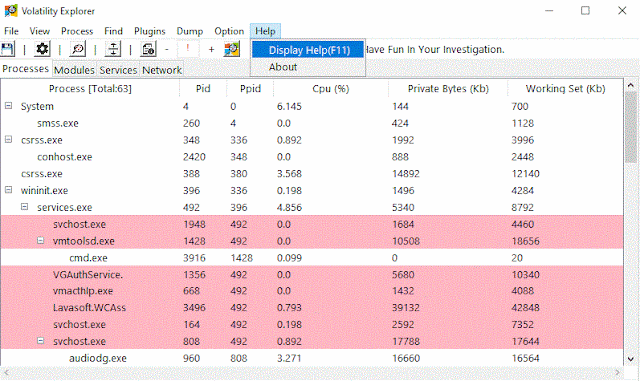
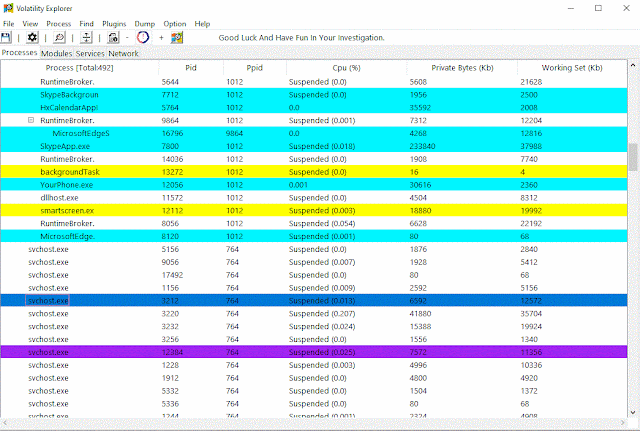




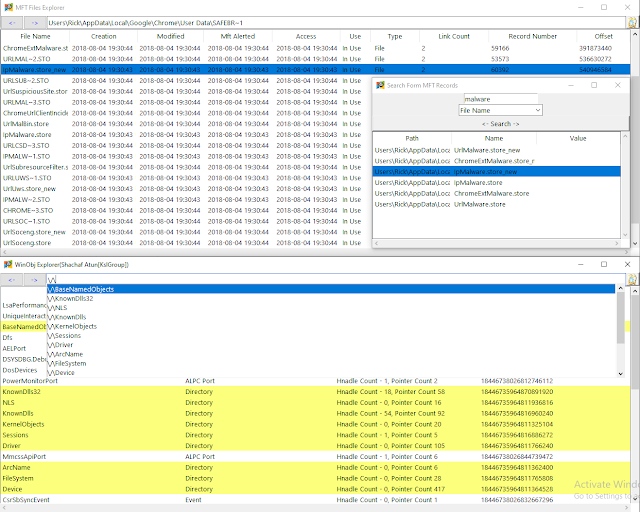
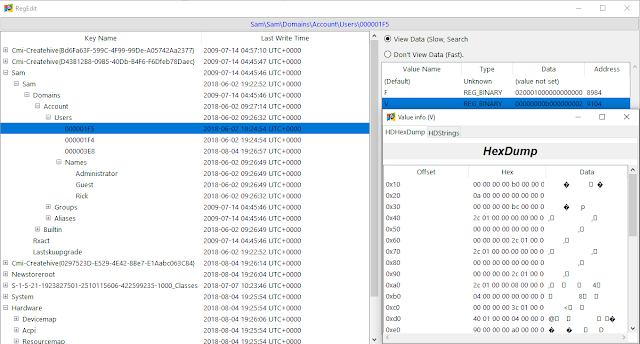
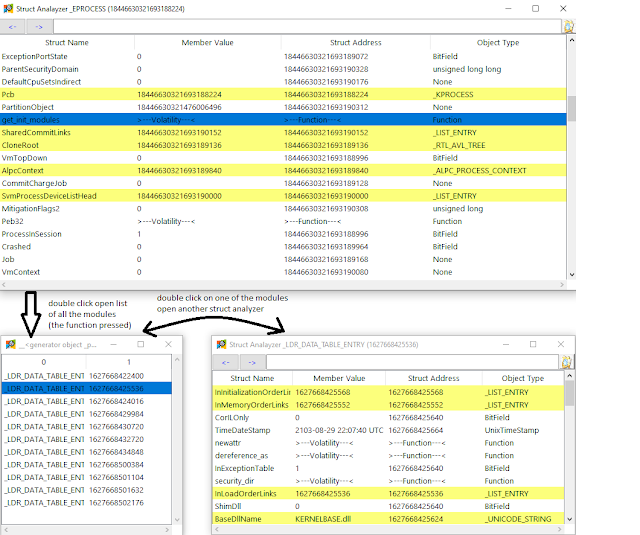
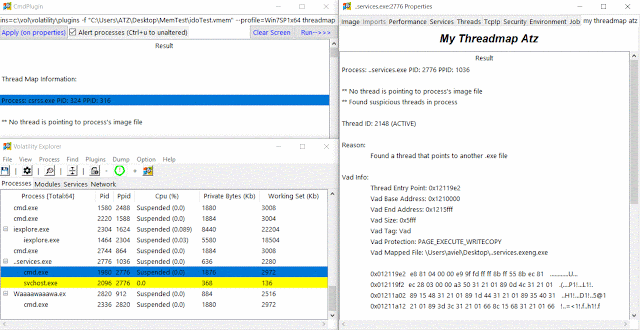
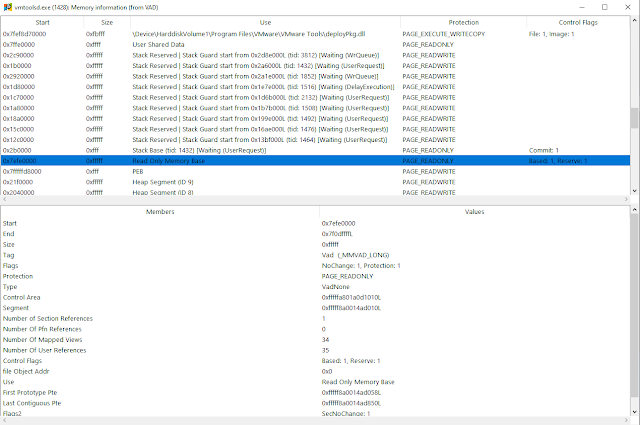
















 Bengali (Bangladesh) ·
Bengali (Bangladesh) ·  English (United States) ·
English (United States) ·